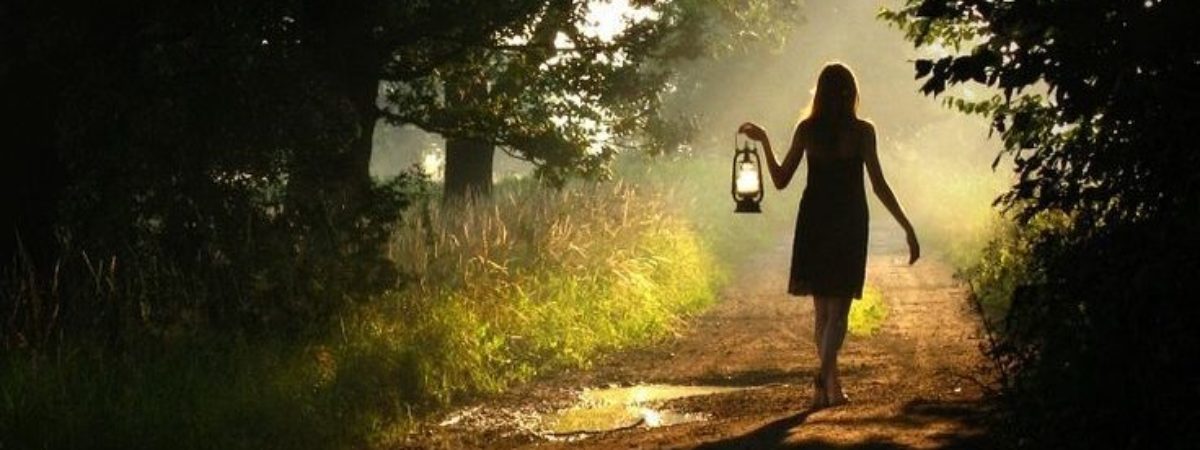In the 1960s, many of us were trying to find ourselves. Hair was growing longer and skirts shorter. The Vietnam War. Bob Dylan, the Beatles and Joni Mitchell. Indeed, the times they were a-changing. Here’s a story about a high school friend and how, in trying to find ourselves, we found the unexpected.
*****
I was a freshman. An all-girls Catholic high school, no less, where — as the outside world pounded on the doors with the decadence of Woodstock — inside the regimen and decorum of a convent prevailed.
 I was quiet by nature. Loved reading. Shy and insecure. And then I met Regina, a classmate. She lived nearby so we rode the bus together.
I was quiet by nature. Loved reading. Shy and insecure. And then I met Regina, a classmate. She lived nearby so we rode the bus together.
She had long red hair — that she ironed nightly into a crisp, flat sheet — flashing green eyes and a tough exterior. She smoked on the sly, cursed like a sailor and spoke her mind. I wanted to be her.
As we grew older, we loved all things “folk” and “British” and Regina tempted me to a place called The Cellar where local bands and singers performed. The steps downward were steep and the room itself, narrow. Pockets of light poked into the darkness from candles stuffed into empty wine bottles set on the few tables that lined the stucco walls.
We entered a shadowy, smoke-filled world where a guitarist strummed “Catch the Wind” by Donovan or a four-piece band thumped out songs by the Rolling Stones.
Regina started dating the bass player of one of the bands and she tried to set me up with the lead guitarist. But I was painfully shy. Our conversation that night fizzled because I wanted to speak of things like “The Little Prince” and Charlotte Bronte and Leonard Cohen. He couldn’t finish a complete sentence. He wouldn’t have understood.
Like her mother, Regina was political. She protested the Vietnam War. She believed in equal rights. In her rights.
One day during history class, she was sitting in the back row by an open door. We watched as the good sister walked down the aisle and yanked her out into the hallway. I overheard part of the conversation. Sister felt that Regina’s bangs were too long and threatened, with scissors in hand, to cut them. “You’re violating my civil rights,” Regina screamed. “You can’t do that!”
 Oh, yes, I wanted to be like Regina, outspoken and courageous in times that demanded a voice.
Oh, yes, I wanted to be like Regina, outspoken and courageous in times that demanded a voice.
But times do change. And so do people. We graduated. Moved on. Life took me into journalism and writing. I lost touch with many of my classmates, including Regina.
Then one day, I was searching on Facebook for high school friends, and that somehow led me to her name and to another site.
And to her obituary.
Regina had died at the age of 56. She had had a hard life. When she was in labor and about to deliver her baby — a single woman and alone — she drove herself to the hospital. Later in life, she worked odd jobs, doing what she had to in order to survive and raise her son.
When she was diagnosed with brain cancer, she wasn’t afraid.
Her sister had written in her obituary that she saw this not as an ending, but the beginning of new life. Somewhere along the way, Regina had rediscovered what the Sisters had planted in our hearts years ago — faith in God. It had sustained her those last days.
The 1960s were a time we were trying to find ourselves. We had dreams to change the world. But some of us got lost along the way.
We didn’t know that as much as we would try “to catch the wind” that we wouldn’t. That as we grew older, life would have its way with us, that we would love, cry, laugh, fall and get up. Again and again.
And sometimes, in those days of turmoil and trying to find ourselves, we never thought that perhaps we were never lost to begin with.
We didn’t know that being shy or outspoken were all good, pieces of who we were becoming. And in that search for self, in the fearlessness of youth, little did we dream we might find ourselves in death some day. Or so soon.
 I go back in memory to that time and can still see Regina, red hair swinging and bangs intact, challenging me about my vote and the Vietnam War, letting a curse word fly, giving voice to her views about civil rights and women’s liberation.
I go back in memory to that time and can still see Regina, red hair swinging and bangs intact, challenging me about my vote and the Vietnam War, letting a curse word fly, giving voice to her views about civil rights and women’s liberation.
I realize now that she was one of the first to show me how it was done, one of the first who helped me find my voice.
And in my heart, I know she’s at peace because she finally did find herself. She found her way home. She caught the wind after all.
******
